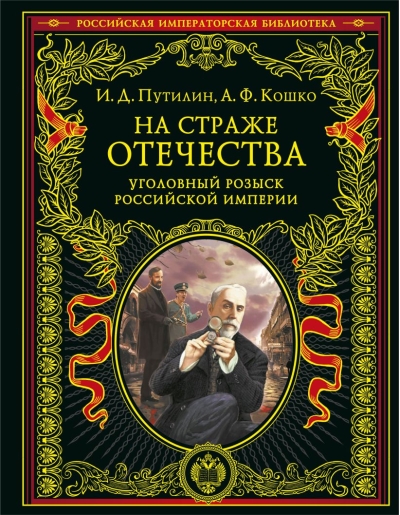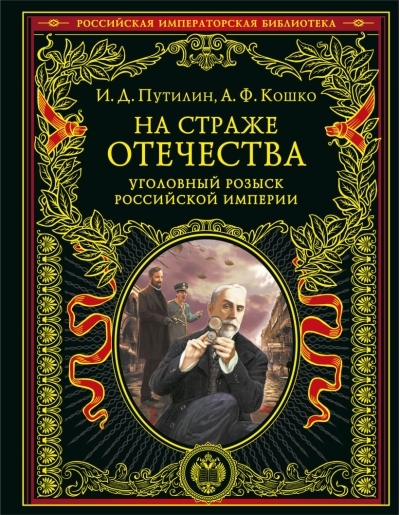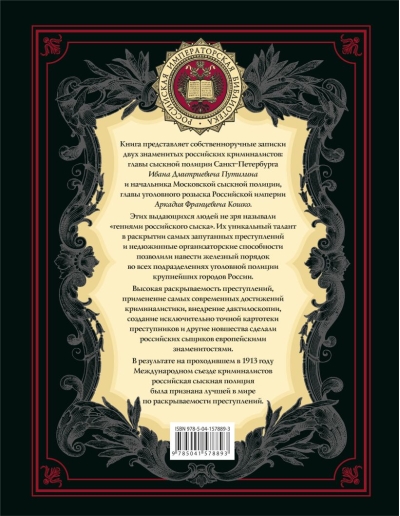Guarding the Fatherland. Criminal Investigation Department of the Russian Empire
29.99 €
The only thing available 3
In the second half of the 19th century, Ivan Dmitrievich Putilin was a legendary man, a menace of the underworld. Having started his service from the lowest position, thanks to his diligence and natural talent, he soon became the head of the St. Petersburg detective police. No significant case in those years was not investigated without his participation or not under his leadership. He could disguise himself in the clothes of a vagrant or laborer and, risking his life, went to criminal groups, learned the plans of thieves and robbers, visited the most criminogenic places: inn, brothels.
Another, no less talented criminalist and detective, head of the Moscow detective police, Arkady Frantsevich Koshko once observed that the initial stage of solving non-obvious crimes resembles the unraveling of yarn. The most difficult thing - to find in the intricacy of the threads of the one that can be pulled to begin to unwind the whole ball. He, like I. D. Putilin, was often called "Russian Sherlock Holmes". Talent in solving the most intricate crimes and inordinate organizational skills allowed them to bring ironclad order in all criminal police departments of the largest cities of Russia. Cowardice, indecision, failure to help were considered extremely unacceptable and served as grounds for dismissal from the police. Certain internal traditions passed down from generation to generation served this purpose. High crime detection rate, application of the most modern achievements of criminalistics, introduction of fingerprinting, creation of an extremely accurate card index of criminals and other innovations made Russian detectives European celebrities. In 1913, the International Congress of Criminalists recognized the Russian detective police as the best in the world.
Another, no less talented criminalist and detective, head of the Moscow detective police, Arkady Frantsevich Koshko once observed that the initial stage of solving non-obvious crimes resembles the unraveling of yarn. The most difficult thing - to find in the intricacy of the threads of the one that can be pulled to begin to unwind the whole ball. He, like I. D. Putilin, was often called "Russian Sherlock Holmes". Talent in solving the most intricate crimes and inordinate organizational skills allowed them to bring ironclad order in all criminal police departments of the largest cities of Russia. Cowardice, indecision, failure to help were considered extremely unacceptable and served as grounds for dismissal from the police. Certain internal traditions passed down from generation to generation served this purpose. High crime detection rate, application of the most modern achievements of criminalistics, introduction of fingerprinting, creation of an extremely accurate card index of criminals and other innovations made Russian detectives European celebrities. In 1913, the International Congress of Criminalists recognized the Russian detective police as the best in the world.
See also:
- All books by the publisher
- All books by the author
- All books in the series Russian Imperial Library







